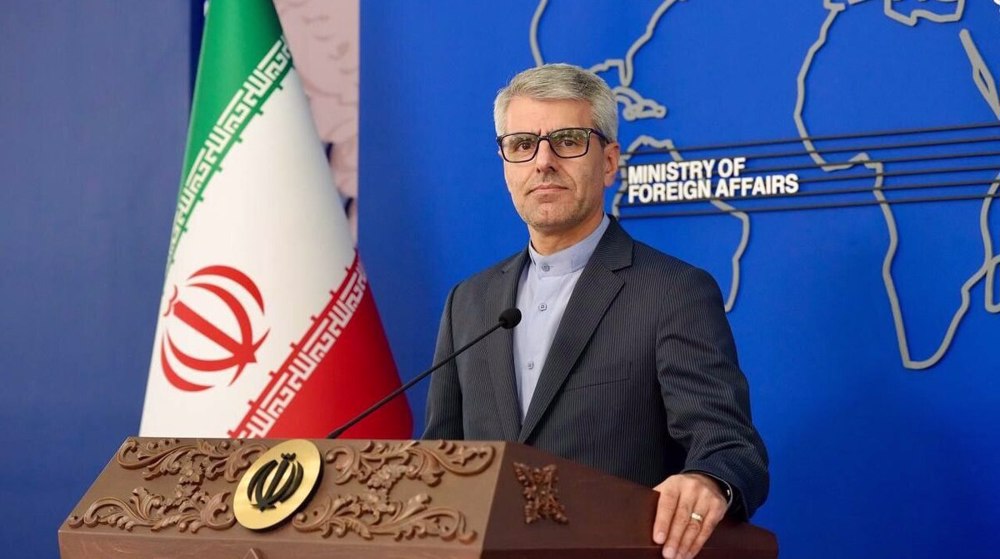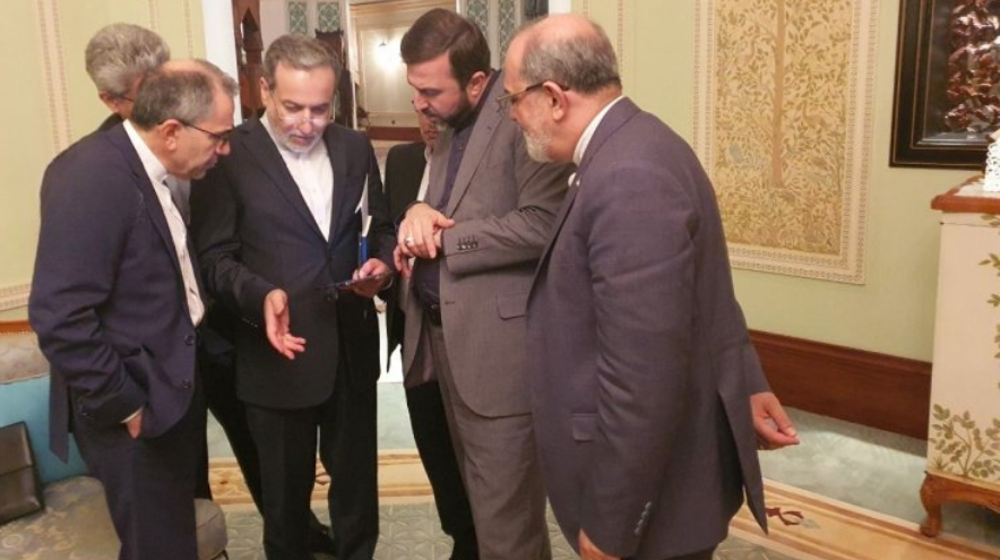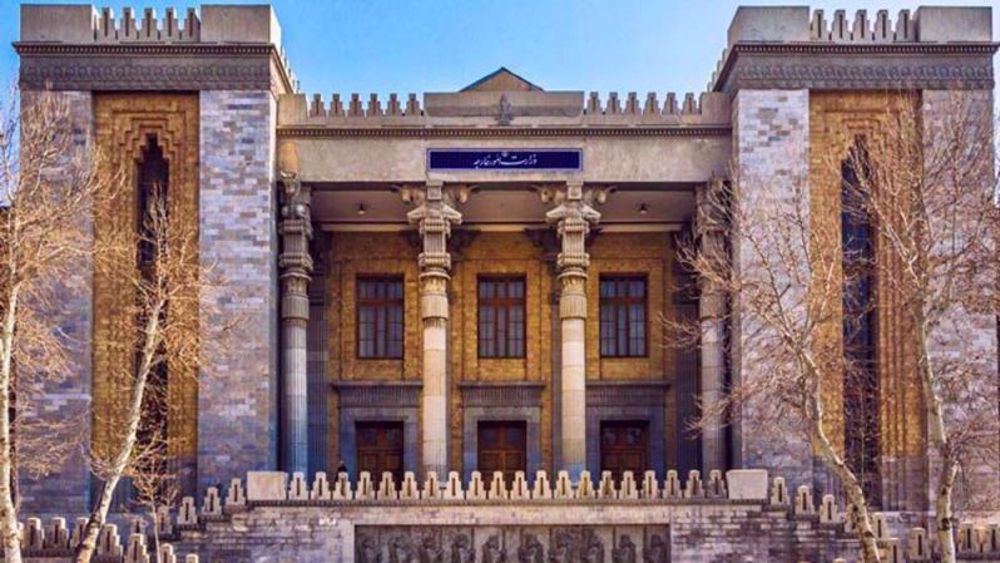Iraqi PM in Iran to cement ties in blow to US sanctions
Iraqi Prime Minister Adel Abdul-Mahdi is in Iran for his first official visit since he took office, in a further sign that Baghdad is serious about maintaining close ties with Tehran despite US pressures.
It comes right on the heels of President Hassan Rouhani's trip to Baghdad last month and the two neighbors' pledge to boost the already flowering trade to $20 billion in two years from $12 billion today.
Along with ministers of commerce, foreign affairs, planning, transportation, health and energy, a number of Iraqi parliamentarians as well as 30 representatives of the private sector are accompanying the Iraqi premier.
Abdul-Mahdi was accorded a warm welcome by Iranian President Hassan Rouhani at Sa'dabad cultural and historical complex in Tehran on Saturday.
Rouhani later called on the two countries to expand their gas and electricity trade and work towards fulfilling a plan to connect their railroads.
"The plans to export electricity and gas and hopefully oil continue and we are ready to expand these contacts not only for the two countries but also for other countries," he said in a joint news conference with Abdul-Mahdi.
Rouhani expressed hope that work on building a railway linking the two countries, under a deal reached in March, would begin within the next few months.
Rouhani's landmark visit to Iraq last month marked the signing of several memorandums of understanding for expansion of cooperation in key sectors and meeting with top political and religious figures.
With a 1,400-kilometer-long joint border, Iraq has turned into a strategic ally and an important trade partner for Iran in recent years.
Iraq's huge energy reserves and a large, diverse market bestow it a special place in the economic equations of the region.
Until two years ago, Iran was Iraq's third biggest trade partner after Turkey and China, but it vaulted to the top place last year with a record $9 billion worth of exports.
Iraq relies on Iranian gas imports to generate as much as 45 percent of its 14,000 megawatts of electricity consumed daily in addition to another 1,000 megawatts imported directly from Iran.
For their run-of-the-mill sustenance, Iraqis also depend on Iran for everything from food to machinery, fruits and vegetables.
A remarkable feature of this close relationship is that much of the blossoming has occurred either in the run-up or after the reimposition of draconian US sanctions on Iran.
Iraq is pushing back on US pressures in what has become a major point of conflict between Washington and Baghdad, the New York Times reported in February.
Last month, the Trump administration said it was extending a 90-day waiver for the second time to let Iraq continue energy imports from Iran.
Observers say the increasingly powerful and mutually beneficial relations between Iran and Iraq will make it all but impossible for the White House to keep the two neighbors apart.
Read more:
Iraq's President Barham Salih has stressed that his country would not be part of a regime of unilateral sanctions imposed by the United States against Iran.
“There is no doubt that we will be affected by these sanctions, but it is certain that we will not be part of them,” he said last month.
Prime Minister Abdul-Mahdi's visit to Iran also comes after a Saudi delegation traveled to Baghdad to reopen the kingdom's consulate in Iraq.
Saudi Minister of Trade Majid bin Abdullah al-Qasabi led a business delegation to Iraq as part of efforts to enhance ties between the two nations.
Riyadh has viewed Iraq's proximity to Iran with enmity. This is while Iraqi leaders have repeatedly praised Iran's role in helping the Arab country confront the Takfiri menace.
Iraqi officials have frequently accused Saudi Arabia of aiding and abetting the Daesh terrorist group, which was largely defeated in Iraq and Syria in late 2017.

Iran warns ‘moving the goalposts’ could derail Tehran-Washington talks

Iran’s enrichment ‘non-negotiable’, talks fruitless under pressure: FM

Iran summons Argentine envoy over accusations against top officials
US imposes sanctions on Chinese buyers of Iranian oil
Iran warns ‘moving the goalposts’ could derail Tehran-Washington talks
VIDEO | South Koreans push back on nuclear energy boost
Gaza death toll from Israel’s savagery passes 51,000 mark: Health ministry
Who is Mahdieh Esfandiari, Iranian academic jailed in France for pro-Palestine advocacy
Hamas urges ‘week-long global’ rallies to push end to Israel’s Gaza genocide
Tehran to host intl. conference on humanity, freedom centered on Leader's thoughts
‘The West as we knew it no longer exists’: European Commission’s chief












 This makes it easy to access the Press TV website
This makes it easy to access the Press TV website